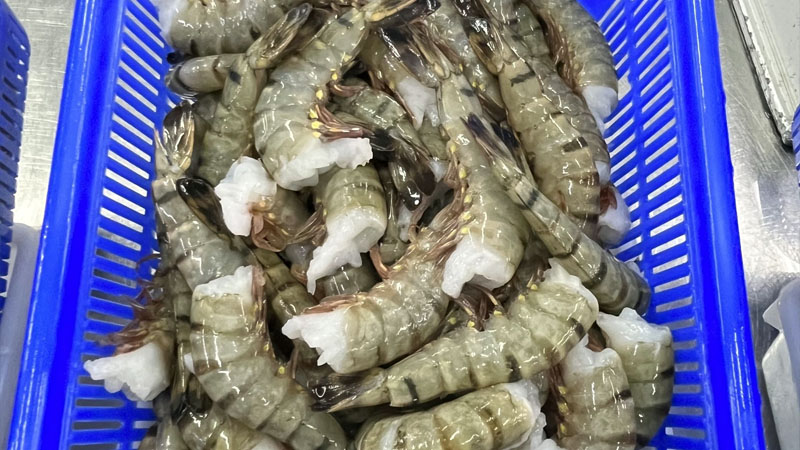Exclusive content

Vietnam, the largest supplier of shrimp to Japan, is experiencing a troubling trend. Prices of black tiger shrimp are on the decline, with little sign of recovery. Despite Vietnam holding a dominant 24% of the market share, the country’s exporters have felt the sting of shrinking revenues and weakening demand, brought on by external economic pressures.
A Market in Retreat
During the first half of 2023, Vietnam exported shrimp worth approximately USD 236 million to Japan. However, the numbers mask a deeper issue: the export value of black tiger shrimp plummeted by 45%, down to USD 42 million, while whiteleg shrimp also saw a 26% drop, reaching USD 150 million.
The average export prices of frozen shrimp fluctuated between USD 6.5 and USD 10.3 per kilogram, with black tiger shrimp fetching slightly higher rates of USD 14.1 to 17.7 per kilogram. Yet even these prices could not escape the downward trend. Prices softened further in the second quarter of the year, adding more pressure on Vietnam’s seafood sector.
The Yen’s Unwanted Role
At the heart of this decline lies Japan’s currency woes. The yen, which has depreciated sharply since early 2023, has disrupted shrimp trade. As the yen weakens, Japanese importers face higher costs, translating into reduced purchasing power. Consumers, too, are tightening their belts as the currency’s depreciation feeds into inflationary pressures. As a result, the price of imported shrimp in Japan has fallen in tandem with the yen, making it harder for exporters to command the same value they once enjoyed.
Vietnam’s Resilience Amid Headwinds
Despite these challenges, Vietnam remains Japan’s largest shrimp supplier, maintaining a firm grip on 24% of the market—well ahead of Thailand, which holds an 18% share. Vietnamese shrimp products, particularly those processed for export, still outperform many competitors in quality and reliability.